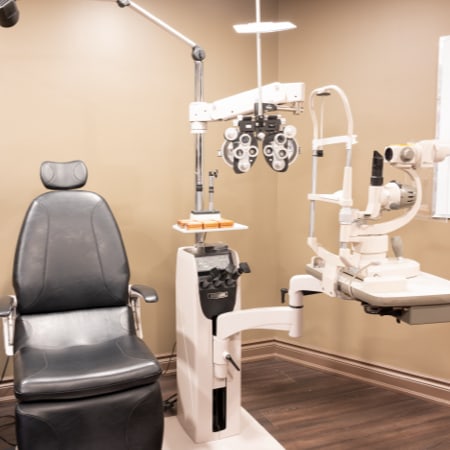Dry eye is a common condition that typically requires treatment to improve comfort. Depending on the severity of your condition, your eye doctor may recommend at-home or in-office treatments. While you can relieve dry eyes, what happens if you avoid treating them?
Continue reading to learn more about dry eyes, what causes them, and what can happen if you don’t get them treated.
What Is Dry Eye?
Dry eye is an often chronic condition where your tears cannot effectively lubricate your eyes, leading to discomfort. Millions of Canadians live with dry eyes, dealing with daily irritation.
You may experience several uncomfortable symptoms if you have dry eye, including:
- Red or watery eyes
- Sensitivity to light
- Foreign object sensation
- Eyes that feel scratchy or itchy
- A burning or stinging sensation in the eye
- Eye fatigue
- Blurred vision
What Causes Dry Eye?
Dry eyes can occur for several reasons, but they generally happen because of issues with your tear film. Your tear film’s layers (mucu-aqueous layer and oil layer) work together to keep your eyes comfortable. The mucu-aqueous layer keeps tears on the eye’s surface and helps protect and hydrate the eye, and the oil layer prevents tears from evaporating too quickly.
When the tear film has issues, the eyes may not produce enough tears, have poor quality tears causing faster evaporation, or a combination of both.
What Happens If You Don’t Treat Dry Eye?
Dry eyes can seem insignificant, but this condition can affect more than your quality of life. If left untreated, dry eye can lead to potential infections and damage the eye’s surface. Without the protection of your tears, your eyes are at risk of several complications.
Some of these possible concerns include corneal ulcers, conjunctivitis, difficulty with contacts, trouble focusing, difficulty opening the eyes, and headaches.
Corneal Ulcer
A corneal ulcer usually develops due to injury, but dry eyes can be a factor. An ulcer is an open wound that develops on the cornea, the transparent outer layer of the eye.
Small particles like dirt can get into your eye, and your tears typically wash this away. However, these particles may not wash out if you don’t have enough tears. Debris can scratch your cornea, letting bacteria inside, which leads to possible infection and an eventual ulcer.
Conjunctivitis
If left unaddressed, dry eyes can inflame your conjunctiva, the clear layer of cells covering the white of your eye and the inside of your eyelids. When your conjunctiva becomes inflamed, it’s known as conjunctivitis.
Conjunctivitis is also known as pink eye, but this form differs from the kind caused by bacteria or illness. Conjunctivitis caused by dry eyes is typically milder, but the inflammation can worsen with time.
Difficulty With Contact Lenses
Contact lenses provide clear vision without needing glasses, but dry eye can affect your ability to wear them. Your eyes need to produce enough tears to enjoy comfortable vision. If not, your lenses become dry, leading to irritation, grittiness, and red eyes.
Besides discomfort, dry eyes can make your contact lenses harder to remove. Dry contacts can stick to your eye’s surface. Contact lenses need enough moisture to work at their best.
If you leave dry eye untreated, you may struggle or not be able to wear contact lenses.
Trouble Focusing
Blurry vision is a common symptom of dry eye, making it harder to see. If dry eye is left unaddressed, your blurry vision can worsen and affect your ability to focus on everyday tasks.
Driving, reading, or working may become difficult and with driving—even dangerous.
Difficulty Keeping the Eyes Open
Depending on the severity of your dry eye, you may struggle to keep your eyes open. Common symptoms of dry eyes include foreign object sensation and light sensitivity. While focusing may be difficult if your eyes feel uncomfortable when exposed to light, extreme light sensitivity may affect your ability to focus at all.
Artificial tears can help provide enough moisture to allow your eyes to open, but you may still need to squint to see.
Headaches
While research is relatively new, there is a possible relationship between dry eyes and headaches. If left untreated, dry eye may cause you to experience frequent headaches. Recent research from 2019 discovered that people living with migraine headaches are more likely to have dry eyes than those who don’t.
While headaches are typically temporary, chronic headaches can significantly affect your quality of life. They may make it difficult to focus or spend time doing the things you love.
Don’t Ignore Dry Eyes
You should never delay care for dry eyes. Your vision is precious, and your eye doctor is here to support your eye health. With the right treatment, they can relieve your symptoms and improve your comfort.
Contact your optometrist if you have symptoms of dry eye.















